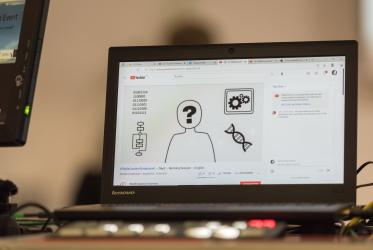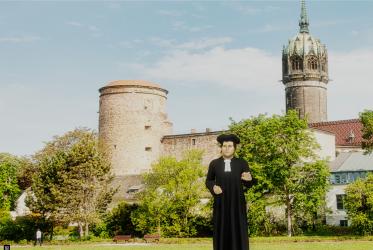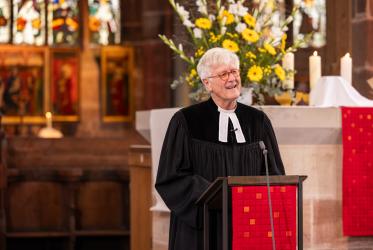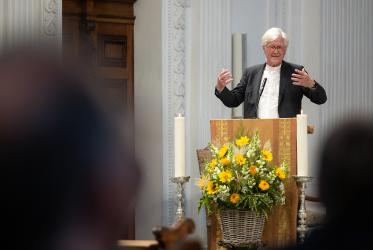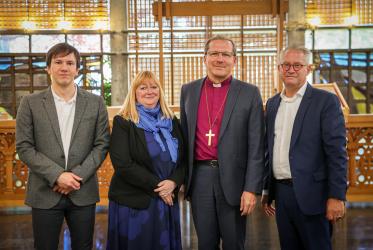"The commercial logic of the digital economy and its powerful effect on personal and public communication threatens the very fabric of discourse so crucial for democratic societies. The fact that the internet is full of fake news and hate speech, full of conspiracy theories and extremist content is no coincidence. It has a reason," he said.
The historic symposium is also co-organized by the World Council of Churches (WCC) and the World Association for Christian Communication (WACC), focusing on the impact of digital transformation on communities and societies.
Other co-organizers include Brot für die Welt (Bread for the World), Evangelische Mission Weltweit in Deutschland (Association of Protestant Churches and Missions in Germany), and World Student Christian Federation. The symposium has the support of the German Federal Government as well.
‘Attracting extreme users’
Bedford-Strohm cautioned that studies show that platforms like YouTube quickly attract users towards more extreme, even extremist content through their recommendations and algorithms.
"The platforms don't assess the political content; they do not create their algorithms according to truth criteria or according to certain fundamental values, but simply according to its potential advertisement passed money output," he said. "If more extreme contents generate the most financial revenue, the algorithms will push them, no matter how detrimental they might be for democratic culture or the promotion of human dignity.
The churches are "in the thick" of discussions about what may come with some seeing digitization as fulfilling a biblical vision.
"You can certainly sense a little of the Pentecostal spirit blowing in the new possibilities of the digital world and its non-hierarchical communication model of all-to-all," said Bedford-Strohm.
He recounted the seeming "communication miracle" when he sat with students at the Ecumenical Institute in Bossey some years ago. A young Georgian woman showed him her translation app that simultaneously read what she said in Georgian in his German language.
"Yet, there are some differences between the Pentecostal language miracle and this digital language miracle. The algorithms, which govern so much of the digital worlds, are not God-made but human-made," explained Bedford-Strohm.
"What appears in the digital arena does not come like fate out of nowhere—it is guided and controlled. Those responsible for this change have a phone number and email account.
"Therefore, what happens in and with the digital world needs to be subject to conscious human agency – hopefully with guidance by God's spirit, but still as a result of human agency."
He said Christians should be online wherever it can help to move the world to reconciliation and unity.
"But this digital presence is not an end in itself but only an instrument. We are not saying: 'I am online; therefore I am. But: I am in Christ; therefore I am. And – honouring our relationality - even more precisely: 'We are in Christ; therefore, we are."
‘New reality, not so new’
Responding to Bedford-Strohm, Dr Erin Green, a Canadian-Belgian researcher and activist working in the area of artificial intelligence (AI), democracy, and the militarization of digital technologies, said that in her AI studies, "I have continually been struck by how new it really isn't."
"When we turn to questions about digital justice, we find in the Christian tradition an incredible depth of insight on racial justice, gender justice, ecological justice, economic justice, and so much more that we can easily bring to bear on digital questions," said Green.
"Instead of fearing that we don't know enough about the digital, to weigh in as experts, we should instead reframe our understanding of expertise and go confidently knowing that we have an incredible wealth to offer about what it means to be human and to live justly within the web of creation."
Dr Sarah Macharia, WACC's media and gender justice manager, said in another response, "Increased digitalization as it currently plays outcomes with greater exposure of girls and women to sexualized harassment, surveillance, trolling and online hate, all which can and do spill out from the virtual world to the physical, lived world."
International symposium "Communication for Social Justice in a Digital Age"


